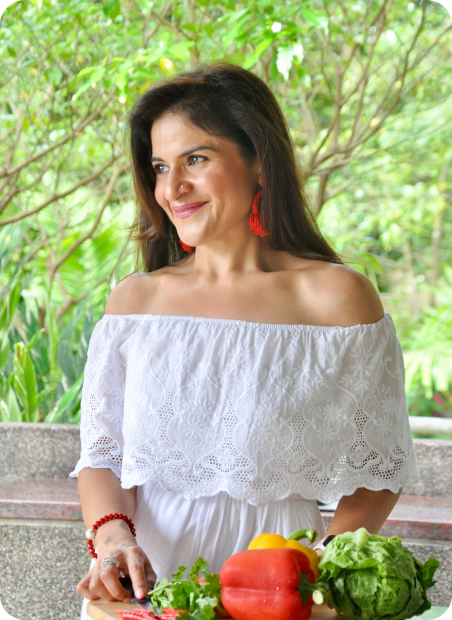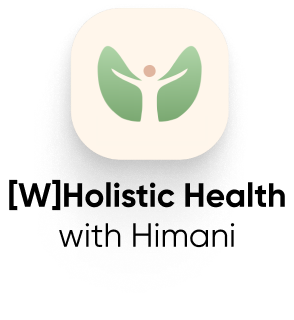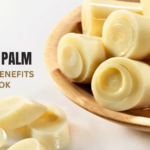Holistic health coaching represents an innovative and comprehensive approach to senior wellness that addresses the multifaceted needs of older adults. It integrates physical, mental, emotional, and social well-being into a unified framework, making it significantly different from traditional healthcare models. According to the United Nations, holistic strategies are increasingly essential for promoting healthy aging, with the senior population growing globally—projected to reach 1.5 billion by 2050.
Table of Contents
ToggleThe Foundations of Holistic Health Coaching
Holistic health coaching operates on the principle that health results from a complex interplay of various life factors. This approach emphasizes prevention, self-awareness, and the empowerment of seniors to take charge of their overall well-being. Unlike conventional models that often focus on treating specific ailments, holistic health coaching prioritizes the interconnectedness of mind, body, and lifestyle.
Data from the World Health Organization (WHO) underscores the importance of a multifaceted approach. Over 70% of adults over 60 suffer from at least one chronic condition, such as hypertension, diabetes, or arthritis. Holistic health coaching provides strategies to manage these conditions while improving the overall quality of life.
Scientific Validation of Holistic Approaches
Evidence-based research has repeatedly demonstrated the effectiveness of holistic health strategies for seniors. A study published in The Journals of Gerontology found that individuals engaging in combined physical and cognitive interventions experienced a 27% improvement in executive function compared to those using traditional methods.
Read More: Understanding Women’s Health: A Holistic Guide
Similarly, Harvard Medical School’s Aging Research Center research highlights that integrated wellness approaches significantly reduce the risk of dementia, with seniors participating in regular holistic practices showing a 30% lower likelihood of developing cognitive impairments.
Another notable finding from the National Institute on Aging revealed that holistic health interventions improved sleep patterns and reduced anxiety levels. They also enhanced physical resilience among participants aged 65 and older.

Personalized Wellness Plans for Seniors
Personalized wellness plans are the cornerstone of holistic health coaching. These plans are crafted after an in-depth assessment of a senior’s medical history, current health status, and personal goals. A comprehensive analysis helps identify the root causes of health issues and allows for tailored interventions.
Advanced diagnostic tools such as wearable health trackers, metabolic testing, and mental health screenings are increasingly used to fine-tune these plans. Research published in Aging & Health shows that seniors adhering to personalized wellness plans experienced a 40% increase in adherence to healthy habits, such as regular exercise and balanced nutrition, compared to those following generic guidelines.
Nutritional Optimization in Holistic Health
Nutrition plays a pivotal role in holistic health coaching. According to the American Nutrition Association, dietary adjustments tailored to an individual’s needs can address inflammation, support immune function, and improve metabolic health.
For seniors, nutrition strategies include:
- Incorporating Anti-Inflammatory Foods: Foods rich in omega-3 fatty acids, such as fatty fish, walnuts, and flaxseeds, help reduce chronic inflammation, a common issue in aging populations.
- Optimizing Digestive Health: Probiotic-rich foods like yogurt and fermented vegetables improve gut health, which is critical for immune system support and nutrient absorption.
- Preventing Nutrient Deficiencies: Aging can impact nutrient absorption, making supplementation of vitamin B12, vitamin D, and calcium essential for bone and cognitive health.
The American Journal of Clinical Nutrition reports that seniors who follow a Mediterranean-style diet experience a 25% lower risk of heart disease and improved longevity.
Lifestyle Adjustments for Sustainable Health
Holistic health coaching encourages seniors to adopt lifestyle habits that enhance their overall well-being. These habits are grounded in physical activity, stress management, and fostering positive relationships.
Physical activity is essential for maintaining mobility and strength. The Centers for Disease Control and Prevention (CDC) recommends at least 150 minutes of moderate-intensity aerobic exercise weekly for older adults. Practices such as tai chi and yoga are particularly beneficial for improving balance, flexibility, and muscle tone.
Read More: What is a Plant-Based Diet, and Why Should You Consider It?
Stress management is another crucial component. Chronic stress has been linked to accelerated aging and a higher risk of chronic diseases. According to research by the Stress Reduction Clinic at the University of Massachusetts Medical School, techniques like mindfulness meditation and controlled breathing exercises have reduced cortisol levels.
Finally, fostering social connections is vital. Data from a 2021 meta-analysis in PLOS Medicine indicates that loneliness increases mortality risk by 26%. Holistic health coaching often integrates community-based activities to help seniors maintain meaningful relationships.
Alternative Therapies in Holistic Health Coaching
Alternative therapies are integral to holistic health coaching for seniors. These therapies provide non-invasive, drug-free solutions to many age-related challenges, often working in synergy with conventional medical treatments.
Acupuncture, for example, is widely used to alleviate chronic pain and improve circulation. A systematic review in Pain Medicine found that acupuncture reduced pain by an average of 50% in seniors with osteoarthritis.
Mind-body practices like yoga and tai chi have demonstrated remarkable benefits for both physical and mental health. A Stanford University’s Center on Longevity study reported that seniors practicing tai chi experienced a 55% reduction in fall-related injuries compared to those not engaging in such practices.
Massage therapy is another valuable tool. Research published in the Journal of Aging Research indicates that regular therapeutic massage can decrease muscle stiffness, improve blood flow, and alleviate anxiety in seniors.
The Role of Mental and Emotional Health in Holistic Health Coaching
Mental and emotional health are foundational to holistic health coaching. The aging process often brings psychological challenges, including depression, anxiety, and cognitive decline. Data from the National Institute of Mental Health (NIMH) shows that nearly 15% of seniors experience depression, yet many go untreated.
Holistic strategies address these challenges by focusing on emotional resilience, cognitive stimulation, and meaningful engagement. Techniques such as gratitude journaling, goal-setting, and creative hobbies like painting or music therapy have been shown to enhance mood and reduce symptoms of depression.
Cognitive health is equally important. Regular mental exercises, such as solving puzzles, learning new skills, or engaging in memory games, can significantly delay the onset of cognitive impairments. A 2020 study published in Neurology demonstrated that seniors participating in cognitive training programs maintained their memory and reasoning skills for an additional two years compared to a control group.
Supporting Seniors Through Major Life Transitions
Life transitions, such as retirement, relocation, or bereavement, can profoundly impact a senior’s well-being. Holistic health coaching offers tailored support to help navigate these changes effectively.
Practical strategies include mindfulness practices to manage stress, goal-setting exercises to create a sense of purpose, and social engagement activities to reduce feelings of isolation. Emotional support is also provided through open communication and active listening, fostering a sense of empowerment during times of uncertainty.
Research by the UCLA Longevity Center shows that seniors receiving targeted emotional support during major life transitions had a 35% lower incidence of depression and anxiety compared to those without such interventions.
Measuring the Effectiveness of Holistic Health Coaching
Quantifiable metrics are essential to validate the success of holistic health coaching. According to the International Coach Federation (ICF), seniors working with certified holistic health coaches achieve up to 70% of their health and wellness goals. These goals often include improved mobility, better nutritional habits, and enhanced emotional health.
Furthermore, longitudinal studies show that seniors who engage in holistic health practices experience fewer hospitalizations and lower healthcare costs. Data from Health Affairs reveals that seniors participating in wellness programs reduced their annual healthcare expenses by 20% on average.
Challenges and Controversies in Alternative Therapies
While alternative therapies are crucial to holistic health coaching, they have limitations and controversies. Critical examination ensures that seniors receive safe, effective, and evidence-based care.
Limited Scientific Validation
Many alternative therapies lack rigorous scientific backing compared to conventional medical treatments. For example, while acupuncture and massage therapy have shown benefits for managing pain, large-scale, placebo-controlled studies still need to be completed. A review published in The Cochrane Database of Systematic Reviews found mixed results regarding acupuncture’s efficacy for conditions such as chronic pain and arthritis, with some studies suggesting strong placebo effects.
Regulatory and Credentialing Issues
A significant challenge is the lack of standardized regulation and credentialing for practitioners in some alternative therapies. For instance, not all massage therapists or yoga instructors must undergo specialized training tailored for senior populations, which could lead to inappropriate or harmful interventions.
Seniors and their families must ensure that practitioners are certified by reputable organizations, such as the National Certification Board for Therapeutic Massage & Bodywork (NCBTMB) or the International Association of Yoga Therapists (IAYT).
Potential for Harm or Adverse Effects
Although many alternative therapies are considered low-risk, certain practices may pose safety concerns, particularly for seniors with pre-existing conditions. For example:
- Chiropractic Adjustments: While beneficial for back pain relief, spinal manipulation has been linked to rare but serious complications, such as vertebral artery dissection, particularly in older adults with osteoporosis.
- Herbal Supplements: Some herbal remedies, like ginkgo biloba or St. John’s wort, can interact with prescription medications, leading to side effects like bleeding risks or reduced efficacy of drugs for chronic conditions like diabetes or hypertension.
The FDA does not regulate herbal supplements as rigorously as pharmaceuticals, which raises concerns about dosage consistency and product safety.
Cost and Accessibility Barriers
Alternative therapies can be costly, especially when not covered by insurance. Modalities like acupuncture, therapeutic massage, or personalized yoga classes often require out-of-pocket payments, limiting accessibility for seniors on fixed incomes.
Additionally, seniors in rural or underserved areas may lack access to qualified practitioners, compounding the challenge of integrating alternative therapies into their wellness plans.
Cultural and Ethical Concerns
Certain alternative practices may be met with skepticism due to cultural or religious beliefs. Seniors from different backgrounds may perceive therapies like meditation or energy healing as incompatible with their values. Holistic health coaches must navigate these sensitivities with cultural competence and respect.
Misuse or Over-Reliance on Alternative Therapies
One of the most significant controversies is the potential for some seniors to misuse or over-rely on alternative therapies as substitutes for conventional medical care. For instance, seniors with serious illnesses like cancer or cardiovascular disease may delay necessary medical interventions in favor of unproven treatments, which can have devastating consequences.
The Journal of the National Cancer Institute reports that cancer patients relying solely on alternative medicine were 2.5 times more likely to die within five years compared to those who combined alternative therapies with conventional treatments.
Misinformation and Pseudoscience
The rise of online health resources has led to the proliferation of misinformation and pseudoscience. Seniors are particularly vulnerable to misleading claims about “miracle cures” or treatments promising unrealistic results. This highlights the need for evidence-based guidance from qualified health coaches and practitioners.
The Growing Demand for Holistic Health Coaches
As the senior population grows, so does the demand for qualified holistic health coaches. Families and seniors increasingly seek professionals with certifications in health coaching, gerontology, and alternative therapies.
Programs accredited by organizations like the National Board for Health & Wellness Coaching (NBHWC) ensure that coaches have the expertise to deliver evidence-based and compassionate care. Coaches specializing in senior health are particularly valued for their ability to address the unique needs of aging populations.
The Future of Health Coaching for Seniors
The future of senior wellness lies in holistic health coaching. This approach addresses immediate health concerns and promotes long-term vitality and independence. Integrating technology, such as wearable health devices and telehealth platforms, makes holistic health coaching more accessible and efficient.
As healthcare systems increasingly recognize the value of prevention and personalization, holistic health coaching is poised to play a central role in shaping how society supports its aging population.

I’m Himani, a Singapore-based health coach certified by IIN. I help clients create personalized nutrition and lifestyle plans that lead to lasting health goals. By focusing on individual needs, I provide actionable steps to support your journey to optimal well-being











